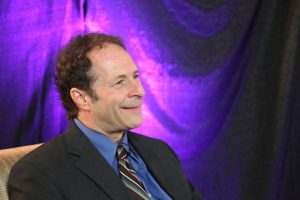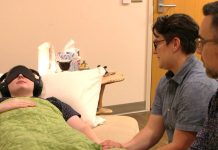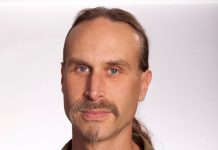Every field needs leaders, and the field of psychedelia therapeutics is no different. Dr. Rick Doblin, founder and executive director of the Multidisciplinary Association for Psychedelic Studies (MAPS), is at the forefront of efforts to destigmatize psychedelics and advocate for their therapeutic as well as social value.
Doblin received his doctorate in Public Policy from Harvard’s Kennedy School of Government where his dissertation investigated the regulation of the medical uses of psychedelics and marijuana. He is also interested in the nexus of psychedelic and religious experiences, as evidenced by his Good Friday Experiment research.
The Good Friday Experiment was run by Walter Pahnke, a physician and minister at Boston University’s Marsh Chapel in 1962, with, of all people, Timothy Leary as his principal academic advisor. The design of the experiment was rather simple, though the results were profound.
Pahnke gave 20 Protestant divinity students one of two pills, depending on the group they were in. The control group received capsules that contained a large dose of niacin, part of the Vitamin B complex, while the experimental group received capsules that contained 30 milligrams of psilocybin, the prodrug to psilocin, a hallucinogen that produces vivid sensory images and distorted perception. Then each group was asked to participate in a traditional Good Friday service. Pahnke hypothesized that the experimental group, which received psilocybin, would have an augmented mystical experience aided by their altered state.
The hypothesis proved to be correct in the short term, and then again in a follow-up 6 months later, but when Doblin decided to extend the research by administering a survey and conducting a series of interviews to test subjects 25 years later, he was astounded to find the impact of the psychedelic-influenced mystical experience persisted. Here is what Doblin concluded:
“A relatively high degree of persisting positive changes were reported by the experimental group while virtually no persisting positive changes were reported by the control group. In the open-ended portion of the long-term follow-up questionnaire, experimental subjects wrote that the experience helped them to resolve career decisions, recognize the arbitrariness of ego boundaries, increase their depth of faith, increase their appreciation of eternal life, deepen their sense of the meaning of Christ, and heighten their sense of joy and beauty. No positive persisting changes were reported by the control group in the open-ended section of the follow-up questionnaire.”
Part of what continues to propel Doblin is a philosophical stance about humankind’s shadow, the dark aspect that can lead people to collectively commit acts of unspeakable horror, such as genocide. In particular, Doblin became interested in how the use of psychedelics could prevent something as horrible and diabolical as The Holocaust.
According to The Jewish Telegraph Agency, Doblin had a mystical dream, and “In his mind, Doblin traveled to Eastern Europe to witness thousands of Jews lined up alongside a mass grave as the gunners open fire, toppling the bodies into the earth. The man spends three days alive underground before emerging and fleeing to the woods, where he survives the war in hiding.”
Doblin states, “It was my recognition that this catastrophic abuse of power and violence was made possible by ignorance, fear, scapegoating, and people projecting their shadow onto others. Psychedelic psychotherapy, and the mystical sense of unity that psychedelics can generate, can be an antidote to all of those things.”
Another formative event in Doblin’s life was his disappointment in his bar mitzvah, which was once seen as a Jewish spiritual right of passage. “I just felt like my bar mitzvah was a massively disappointing rite of passage that didn’t engage me at the levels that I needed to be engaged in, that I was hungry for,” he said.
Seeking this spiritual connection, Doblin was led to experiment with LSD four years later. Reflecting upon his LSD experiences, Doblin said “ . . . when I first started taking LSD, I was like, this is what my bar mitzvah should have done. This is engaging me at the existential, spiritual, emotional levels that really can produce a rite of passage, that this is what I was missing.”

Doblin’s experiences with LSD pointed him in the direction of wanting to become a therapist and use psychedelics to help others achieve similar insights. Unfortunately for Dobin, LSD became illegal in 1966 when Congress passed the Drug Abuse Control Amendment, banning the manufacture or sale of LSD and similar hallucinogens. Undeterred, Doblin studied with Dr. Stanislav Grof, one of the principal developers of transpersonal psychology and research into the use of altered states of consciousness for purposes of personal and spiritual transformation.
Doblin was also among the first to be certified in Holotropic Breathwork, which according to their website, is an “. . . approach to self-exploration and personal empowerment that relies on our innate inner wisdom and its capacity to move us toward positive transformation and wholeness.”
Buoyed by a sense of the incredible moral, therapeutic, and spiritual implications of psychedelic use on a sociological level, Doblin felt compelled to form MAPS. Though the philosophy of MAPS is to be a “non-profit research and educational organization that develops medical, legal, and cultural contexts for people to benefit from the careful uses of psychedelics and marijuana,” under Doblin’s leadership, they have become much more than that.
With Doblin at the helm, MAPS is on an ethical quest to address some of the most serious mental-health issues of our time. In particular, MAPS is conducting two Phase 3 clinical trials for MDMA-assisted therapy for PTSD, with results being published sometime early next year.
Through MAPS, Doblin hopes to reach a wider audience regarding the transformative power of psychedelics in Western society. The ethos is captured elegantly in the following quote from Doblin: “Psychedelics are not a substitute for faith. They are a door to authentic faith, born of encountering directly the sacred dimension of everyday experience. This is not the only gate to that discovery, but it is the most ancient and universal, and potentially the most accessible to the majority of the human race.”
In a time when we are increasingly creeping towards the edge of the abyss of nuclear annihilation, perhaps Doblin is on to something. Perhaps psychedelics can serve as an existential reset button to prevent our mass self-immolation.






